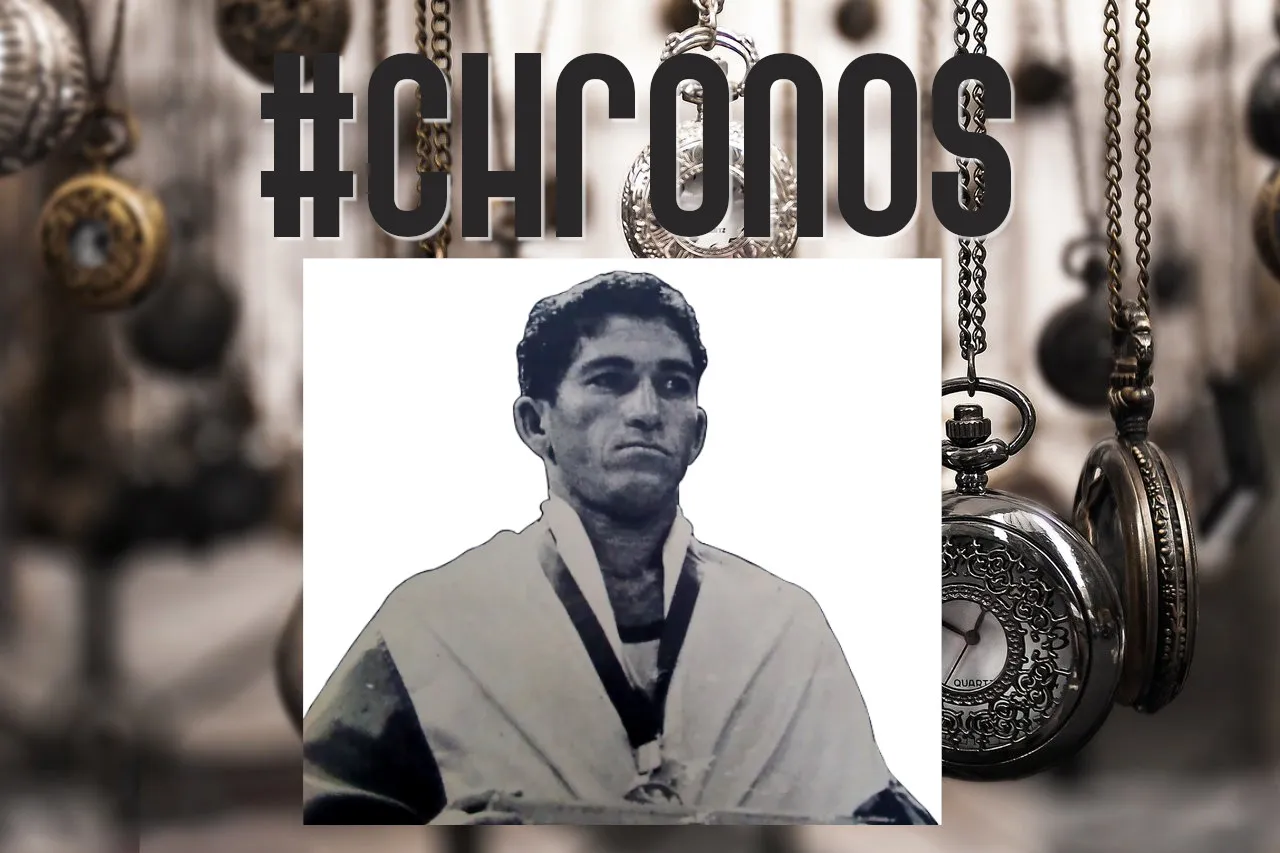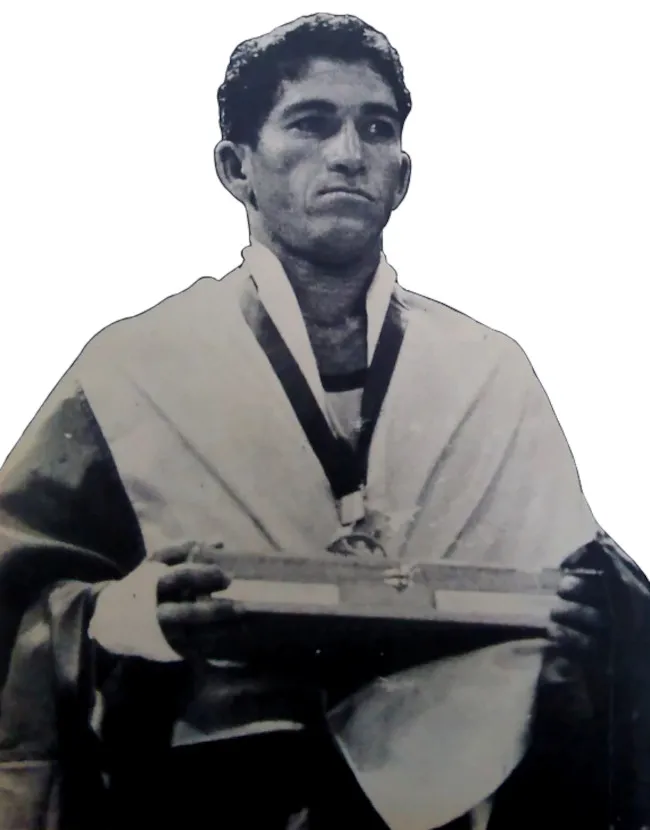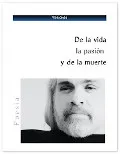Un nuevo capítulo de mi vida en El Silencio, uno de los lugares más emblemáticos de la ciudad y cargado con cientos de miles de historias. Para mí son todos recuerdos maravillosos, aunque muchos de ellos tuvieran trasfondos más tristes y oscuros. Pero es que esa forma de ver la vida es un aprendizaje que viene ya desde aquellos tiempos.
Y una de las cosas que he disfrutado con cada una de estas publicaciones, es que cada lector lo ha tomado a su manera. Algunos se enfocan en la tristeza detrás del cuento, para otros solo evoca la belleza del lugar, otros comparten las alegrías implícitas en cada historia.
Esa variedad de sentimientos generados con estas crónicas, son sin duda la mejor recompensa por este trabajo.
A new chapter of my life in El Silencio, one of the most emblematic places in the city and loaded with hundreds of thousands of stories. For me they are all wonderful memories, although many of them had sadder and darker undertones. But that way of looking at life is a learning process that comes from those times.
And one of the things I've enjoyed with each of these posts is that each reader has taken it in their own way. Some focus on the sadness behind the story, for others it just evokes the beauty of the place, others share the joys implicit in each story.
That variety of feelings generated with these chronicles, are undoubtedly the best reward for this work.
English version below!

Paradójicamente, con el inicio en Venezuela de lo que se llamó “la llegada de la democracia”, luego de la caída del dictador Marcos Pérez Jiménez, se tomaron una cantidad de medidas antipopulares que desataron una fuerte reacción popular, lo que le dio pie al nuevo gobierno de empezar la persecución de muchos líderes que habían sido parte de la lucha contra la dictadura, la prohibición de partidos políticos, desapariciones forzosas de líderes populares, sindicales y políticos. Así mismo, ejecuciones sumarias, como la de mi tío Oswaldo.
Los artistas (los de verdad, no los de televisión) eran sometidos a censuras y presiones de todo tipo, incluyendo el negarle el derecho al trabajo, como en el caso de mi papá.
Aunque yo era un niño, tuve que aprender que había cosas que no se podían decir, por ejemplo mi nombre (que a mucha gente le sonaba a comunista) ni mi apellido, porque era el mismo de mi tío y el de mi papá.
Aunque no era cosa de todos los días, habíamos aprendido a diferenciar el sonido de los fuegos pirotécnicos, de los disparos de armas. También sabíamos muy bien que cuando sonaban “los tiros”, debíamos tirarnos al piso y, preferiblemente, meternos debajo de la cama.
Sin embargo, estas cosas eran rutinas muy particulares que no opacaban una infancia feliz, con una hermosa familia llena de amor y unos vecinos muy amigables y solidarios, como lo habían demostrado en 1967 cuando el famoso terremoto de Caracas, que había acabado con una buena parte de la ciudad y con miles de vidas.
Tanto mi hermana, como la muchacha que nos cuidaba cuando mis papás tenían función de teatro y yo teníamos claras esas medidas de seguridad, las cuales aplicábamos sin ninguna paranoia, sino de la misma manera que uno esquivaba una pelota cuando veías que no la podías atrapar.
Casa de intelectuales al fin, era cultural casi todo el material que se consumía, discos y libros, junto a la más alta tecnología en equipo de reproducción sonora, que era una de las pasiones de mi papá. Tenían poca cabida en mi casa los deportes, la farándula y afines.
El 26 de octubre era sábado, por lo que presumo que mi mamá y mi papá estarían en el teatro. En la casa sonaba la radio, como de costumbre en la emisora radio Rumbos, que aparte de tener buena música, era donde transmitían las radionovelas en las que regularmente actuaba mi mamá.
Aunque no era muy tarde, ya la noche había cubierto el cielo caraqueño y el tráfico intenso, característico de la zona céntrica de El Silencio, se había apagado para pasar a hacer honor al nombre de la urbanización. Apenas se escuchaban las voces de algunos transeúntes o la voz cantarina de algún borrachito caminando rumbo a San Martín.
Los recuerdos del terremoto un año antes, no habían cerrado las muchas heridas que le dejó a la ciudad, pero ya todos se habían acostumbrado a ese pasado que se empeñaba en recordarnos aquella fecha con pequeños movimientos telúricos.
Pero sin movimiento de tierra, sin disparos ni ráfagas, de pronto empezó a elevarse un murmullo, que prontamente se convirtió en griterío, la gente salía como loca a las calles y corrían de un lado para otro. Nuestro primer impulso fue tirarnos los tres al piso, pero pronto entendimos que no había necesidad. Cleotilde, la chica que nos cuidaba, nos dio instrucciones de quedarnos en la sala mientras ella se asomaba al balcón que daba a la calle, para descifrar qué ocurría.
Los gritos se escuchaban confusos y entremezclados
— ¡Le ganó a Yong-Ju!
— ¡Cumaná parió un héroe!
— ¡Ese es mi gallo!
De manera casi inmediata se armaron caravanas de carros tocando bocina a todo volumen y la gente cargaba y ondeaba las banderas del tricolor patrio gritando vivas.
Cuando finalmente Cleotilde decidió escuchar la radio, pudimos saber el motivo de aquella algarabía:
Esa noche del 26 de octubre de 1968, escasos minutos antes, en la ciudad de México, el boxeador surcoreano de la categoría peso mosca junior, Yong-Ju Jee, fue derrotado por el venezolano Francisco “Morochito” Rodríguez, quien se convirtió en el primer venezolano en conquistar una medalla de oro en los Juegos Olímpicos y, como tal, escribió parte de nuestra historia deportiva. Y aún hoy, a sus 77 años de edad, sigue siendo homenajeado por aquella gesta que hizo vibrar a un país entero.


English version
Paradoxically, with the beginning in Venezuela of what was called "the arrival of democracy", after the fall of the dictator Marcos Pérez Jiménez, a number of anti-popular measures were taken that unleashed a strong popular reaction, which led the new government to begin the persecution of many leaders who had been part of the struggle against the dictatorship, the prohibition of political parties, forced disappearances of popular, union and political leaders. Also, summary executions, such as that of my uncle Oswaldo.
Artists (the real kind, not the TV ones) were subjected to censorship and pressures of all kinds, including the denial of the right to work, as in the case of my father.
Although I was a child, I had to learn that there were things that could not be said, for example my name (which sounded communist to many people) or my last name, because it was the same as my uncle's and my father's.
Although it was not an everyday thing, we had learned to differentiate the sound of fireworks from gunshots. We also knew very well that when "the shots" rang out, we should drop to the floor and, preferably, get under the bed.
However, these things were very particular routines that did not overshadow a happy childhood, with a beautiful family full of love and very friendly and supportive neighbors, as they had demonstrated in 1967 when the famous Caracas earthquake, which had wiped out a good part of the city and thousands of lives.
Both my sister and the girl who took care of us when my parents had a theater show and I were very aware of those safety measures, which we applied without any paranoia, but in the same way that one dodges a ball when you see that you can't catch it.
A house of intellectuals after all, it was cultural almost all the material that was consumed, records and books, together with the highest technology in sound reproduction equipment, which was one of my father's passions. There was little room in my house for sports, celebrities, and the like.
October 26th was Saturday, so I assumed my mom and dad would be at the theater. In the house the radio was playing, as usual on the Rumbos radio station, which besides having good music, was where they broadcast the radio soap operas in which my mother regularly acted.
Although it was not very late, night had already covered the Caracas sky and the intense traffic, characteristic of the downtown area of El Silencio, had died down to honor the name of the urbanization. The voices of some passers-by or the singing voice of some drunkard walking towards San Martín could barely be heard.
The memories of the earthquake a year before had not closed the many wounds left to the city, but everyone had become accustomed to that past that insisted on reminding us of that date with small telluric movements.
But without earth movement, without gunshots or blasts, suddenly a murmur began to rise, which soon became shouting, people went out like crazy into the streets and ran from one side to another. Our first impulse was to throw the three of us to the ground, but we soon understood that there was no need. Cleotilde, the girl who was taking care of us, instructed us to stay in the living room while she looked out onto the balcony overlooking the street to find out what was going on.
The shouting sounded confused and intermingled
He beat Yong-Ju!
Cumana gave birth to a hero!
That's my rooster!
Almost immediately, caravans of cars honked their horns at full volume and people carried and waved the flags of the national tricolor shouting cheers.
When Cleotilde finally decided to listen to the radio, we were able to find out the reason for that hullabaloo:
That night of October 26, 1968, just minutes before, in Mexico City, the South Korean boxer of the junior flyweight category, Yong-Ju Jee, was defeated by the Venezuelan Francisco "Morochito" Rodriguez, who became the first Venezuelan to win a gold medal at the Olympic Games and, as such, wrote part of the history of our sport. And even today, at 77 years of age, he continues to be honored for that feat that made vibrate an entire country.

Este texto pertenece a mi serie #Chronos. Puedes leer más sobre la misma en Mis crónicas literarias. Si es de tu agrado este estilo y quieres sumarte a la creación de crónicas literarias, te invito a usar la etiqueta #chronos para la misma.
This writing is part of my series #Chronos. You can read more about it on My literary chronicles. If you like this style and want to join the creation of literary chronicles, I invite you to use the hashtag #chronos for it.

Descarga el poemario de @Ylich"De la vida, la pasión y de la muerte"¡Haz clic aquí! |  |
|---|

If you don't have an account at Hive yet, I invite you to read my post My Hive Testimony || Mi testimonio Hive
Si aún no tienes cuenta en Hive te invito a leer mi publicación My Hive Testimony || Mi testimonio Hive
